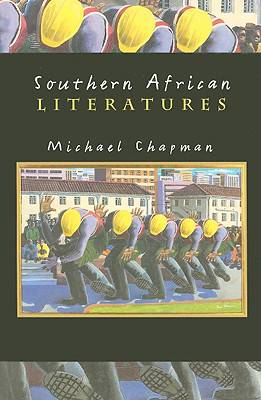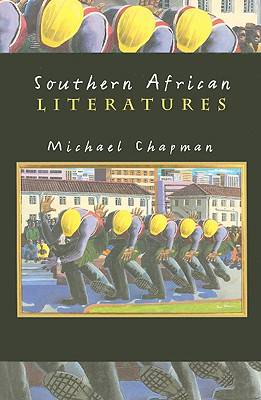
- Afhalen na 1 uur in een winkel met voorraad
- Gratis thuislevering in België vanaf € 30
- Ruim aanbod met 7 miljoen producten
- Afhalen na 1 uur in een winkel met voorraad
- Gratis thuislevering in België vanaf € 30
- Ruim aanbod met 7 miljoen producten
Zoeken
Omschrijving
Southern African Literatures is a major study of the work of writers from South Africa, Zimbabwe, Zambia, Malawi, Angola, Mozambique and Namibia, written at a time of crucial change in the subcontinent. It covers a wide range of work from the storytelling of stone-age Bushmen to modern writing by renowned figures such as Es'kia Mphahlele, Nadine Gordimer and AndrÃ?Â?Ã?Â(c) Brink, encompassing traditional, popular and elite writing; literature in translation; and case studies based on topical issues. Michael Chapman argues that literary history in the southern African region is best based on a comparative method which, while respecting differences of language, race and social circumstance, seeks cultural interchange including translations of experience across linguistic and ethnic borders. Instead of perpetuating division, the study examines points of common reference, as it asks what makes a literary culture. Who are to be regarded as major and minor authors? What are the strengths and limitations of local and international perspectives? Should literature in today's southern Africa be confined to the art forms of poems, plays and fiction? The author seeks to answer these questions - vital to all literary discussion - in the volatile context of recent southern African history, in a style accessible to the general reader. The study is republished with a revised Preface, in which the author considers the sometimes heated debates that accompanied the book's initial appearance. Southern African Literatures, in 2000, was awarded the premier Bill Venter Prize for academic literature in South Africa.
Specificaties
Betrokkenen
- Auteur(s):
- Uitgeverij:
Inhoud
- Aantal bladzijden:
- 533
- Taal:
- Engels
Eigenschappen
- Productcode (EAN):
- 9781869140281
- Verschijningsdatum:
- 1/05/2003
- Uitvoering:
- Paperback
- Formaat:
- Trade paperback (VS)
- Afmetingen:
- 147 mm x 229 mm
- Gewicht:
- 703 g

Alleen bij Standaard Boekhandel
+ 137 punten op je klantenkaart van Standaard Boekhandel
Beoordelingen
We publiceren alleen reviews die voldoen aan de voorwaarden voor reviews. Bekijk onze voorwaarden voor reviews.











